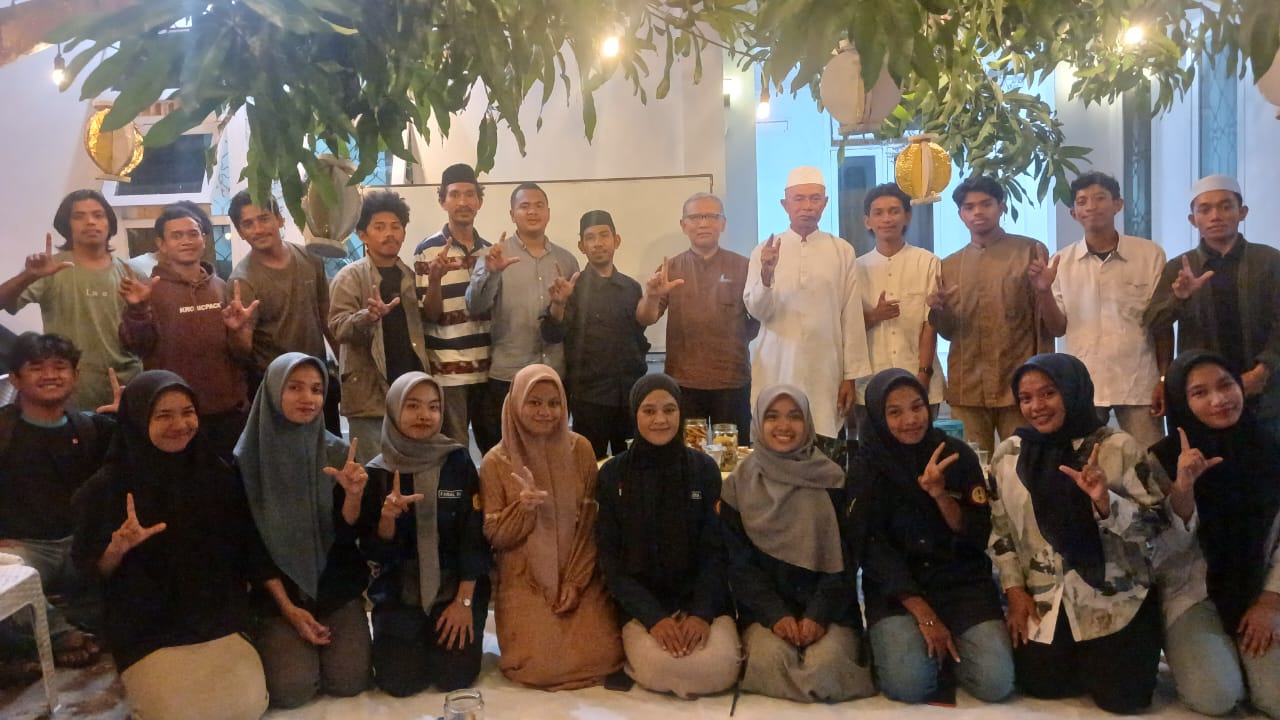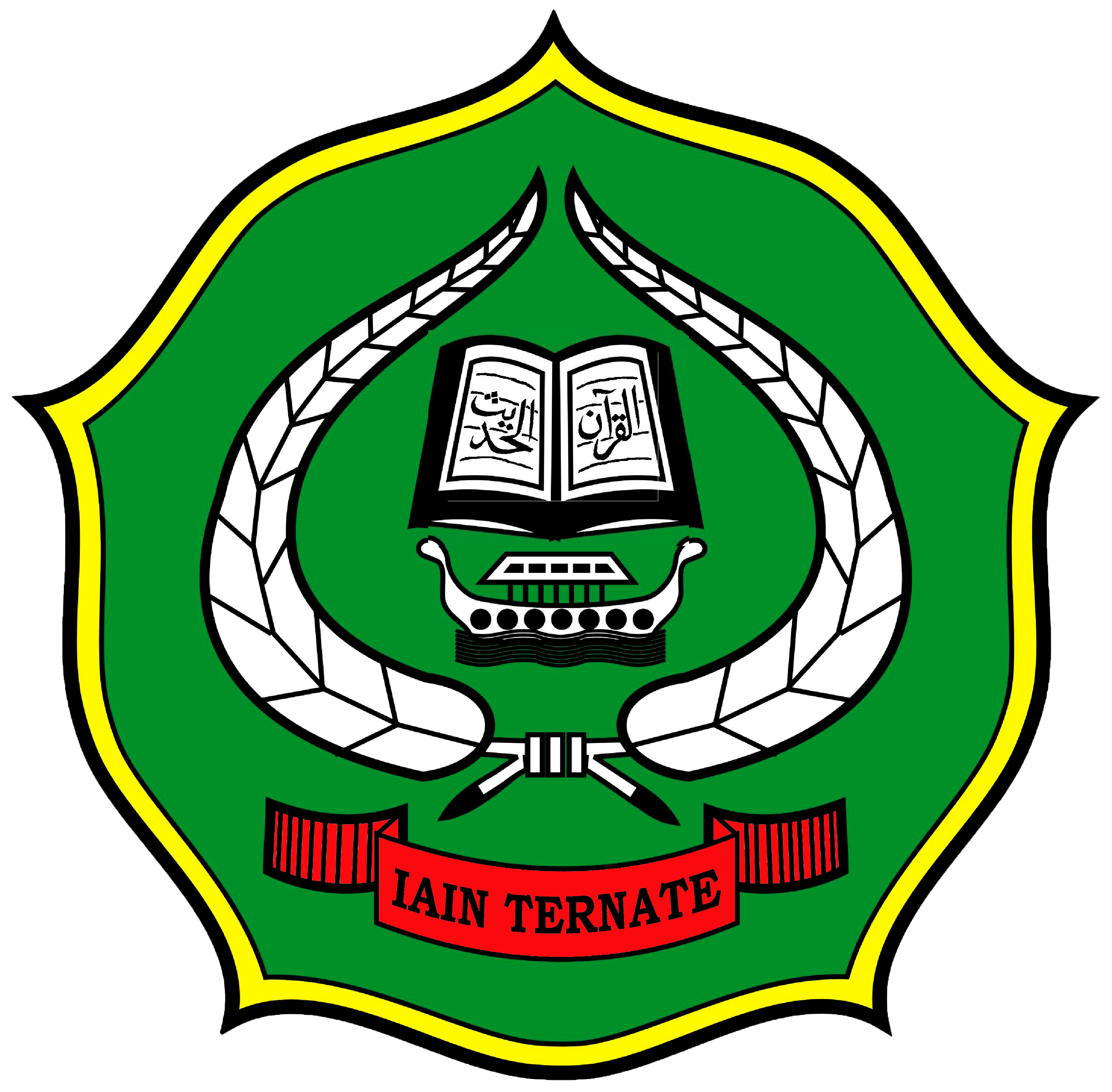
Presenting the Dean of the Faculty of Sharia IAIN Ternate Prof. Jubair Situmorang, DEMA FUAD IAIN Ternate Holds a Discussion on Nonako Diri
TERNATE – The Student Executive Council (Dema) of the Faculty of Usuluddin Adab and Da'wah (FUAD) of IAIN Ternate, North Maluku, together with the Marimoi Studio of IAIN Ternate, and the Sidanga Student and Student Association (IKPSMS) of West Kasiruta District, South Halmahera held a discussion entitled Nonako Diri at the White House Coffee in the Toloko area of North Sangaji Village, Ternate City, Thursday (1/5/2025) evening.
The discussion, which took place at 20.00 WIT, presented a professor in the field of Fiqh Siyasah of IAIN Ternate, Prof. Dr. H. Jubair Situmorang, M.Ag, and a lecturer at FUAD IAIN Ternate, Usman Nomay, S.Ag., M.Ag as speakers.
Prof. Jubair Situmorang, met after the discussion, said that the discussion activity initiated by Dema Fuad IAIN Ternate deserves to be appreciated, because at a time when student discussions are no longer running routinely, especially now that young people use cafes only as a place to hang out without providing benefits, Dema Fuad IAIN Ternate actually appears inspiring.
"Precisely here (White House Coffee, ed) routine studies are carried out with various interesting themes related to events or momentum, this is very interesting for me," he said.
"Students who attended were not only from IAIN Ternate, but also from other campuses and students, this shows that they are actually thirsty for knowledge, and of course enjoy scientific studies and discussions like this," he continued.
According to him, the theme carried in the discussion activity related to Nonako Diri or studying oneself, is quite an interesting theme, because it examines the role and function of humans as caliphs on earth.
For that, he continued, if humans are aware of their duties and functions, they can practically live their lives according to what is ordered in religion. This, he said, will later make it easier for humans at the end of their lives, because they have embodied their duties and responsibilities as caliphs.
Regarding the duties and responsibilities as caliphs, according to him, especially in North Maluku, it is necessary to carry out coercion, namely forcing ourselves, society, and the government to really and seriously carry out their duties and responsibilities according to the noble values of our culture.
"In the context of North Maluku, in addition to living life by referring to religious commands, on the other hand, we are required to carry out duties and responsibilities in accordance with the noble values of culture that we believe that it is an inseparable part of our society in North Maluku," he said.
He considered that this must start from the campus, namely academics and students must appear with thoughts and concepts, which are then implemented in social life, so that they can bring about change in the midst of society.
"Therefore, students must play an active role to "force" in a positive way, to change the mindset of society to remember the duties and roles as caliphs who always carry out duties according to the values of our religion and noble culture," he explained.
In addition to living life by referring to religious values and the noble values of local culture. On the other hand, he continued, humans are also required to protect the environment, so that it will later have a positive impact on the sustainability of life. According to him, if academics and students pay attention to the environment, they practically play a role in environmental sustainability.
"In North Maluku there are a number of companies that manage natural resources, this is our concern, especially academics and students, to provide thoughts and concepts related to environmental management, so that our environment is well maintained," he explained.
The man born in Medan, North Sumatra, who is also the Dean of the Faculty of Sharia at IAIN Ternate said that currently the campus paradigm has changed from an independent campus to an impactful campus. The demands of an impactful campus, he said, one of which is that students always do things that have a positive impact on society.
"We hope that students on campuses in North Maluku will have an impact, because they have been equipped with various theories and paradigms, and are then required to play a role in society based on the knowledge they gain on campus," he explained.
"I am sure with this new paradigm of campus, students will play a greater role in the community," he said, ending. (*)
The discussion, which took place at 20.00 WIT, presented a professor in the field of Fiqh Siyasah of IAIN Ternate, Prof. Dr. H. Jubair Situmorang, M.Ag, and a lecturer at FUAD IAIN Ternate, Usman Nomay, S.Ag., M.Ag as speakers.
Prof. Jubair Situmorang, met after the discussion, said that the discussion activity initiated by Dema Fuad IAIN Ternate deserves to be appreciated, because at a time when student discussions are no longer running routinely, especially now that young people use cafes only as a place to hang out without providing benefits, Dema Fuad IAIN Ternate actually appears inspiring.
"Precisely here (White House Coffee, ed) routine studies are carried out with various interesting themes related to events or momentum, this is very interesting for me," he said.
"Students who attended were not only from IAIN Ternate, but also from other campuses and students, this shows that they are actually thirsty for knowledge, and of course enjoy scientific studies and discussions like this," he continued.
According to him, the theme carried in the discussion activity related to Nonako Diri or studying oneself, is quite an interesting theme, because it examines the role and function of humans as caliphs on earth.
For that, he continued, if humans are aware of their duties and functions, they can practically live their lives according to what is ordered in religion. This, he said, will later make it easier for humans at the end of their lives, because they have embodied their duties and responsibilities as caliphs.
Regarding the duties and responsibilities as caliphs, according to him, especially in North Maluku, it is necessary to carry out coercion, namely forcing ourselves, society, and the government to really and seriously carry out their duties and responsibilities according to the noble values of our culture.
"In the context of North Maluku, in addition to living life by referring to religious commands, on the other hand, we are required to carry out duties and responsibilities in accordance with the noble values of culture that we believe that it is an inseparable part of our society in North Maluku," he said.
He considered that this must start from the campus, namely academics and students must appear with thoughts and concepts, which are then implemented in social life, so that they can bring about change in the midst of society.
"Therefore, students must play an active role to "force" in a positive way, to change the mindset of society to remember the duties and roles as caliphs who always carry out duties according to the values of our religion and noble culture," he explained.
In addition to living life by referring to religious values and the noble values of local culture. On the other hand, he continued, humans are also required to protect the environment, so that it will later have a positive impact on the sustainability of life. According to him, if academics and students pay attention to the environment, they practically play a role in environmental sustainability.
"In North Maluku there are a number of companies that manage natural resources, this is our concern, especially academics and students, to provide thoughts and concepts related to environmental management, so that our environment is well maintained," he explained.
The man born in Medan, North Sumatra, who is also the Dean of the Faculty of Sharia at IAIN Ternate said that currently the campus paradigm has changed from an independent campus to an impactful campus. The demands of an impactful campus, he said, one of which is that students always do things that have a positive impact on society.
"We hope that students on campuses in North Maluku will have an impact, because they have been equipped with various theories and paradigms, and are then required to play a role in society based on the knowledge they gain on campus," he explained.
"I am sure with this new paradigm of campus, students will play a greater role in the community," he said, ending. (*)
